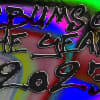Tired of reading the same recommended books from the usual sources? Just think of our weekly What We’re Reading column as your non-committal book club with The FADER and some of your favorite bands. For this installment, Laurel Halo gives us her must reads.
Poem Strip by Dino Buzzati: Poem Strip is a graphic novel about the Orpheus myth. Orfi is a young rock’n’roll god of Milan, the ladies pine over him and his rock stardom and perfect music, but he has love only for Eura, who goes mysteriously missing one night. A James Dean-esque stranger implores him through a backalley door which takes him to the Underworld, where legions of the dead feel nothing—no pain, no suffering, no love or feeling. After relentless searching he finds her, but she’s lost the will to live. Unlike the original Orpheus myth, it’s her lack of will to live that ultimately separates the two, and the force of life snatches Orfi back from the Underworld, never to see Eura again. Published in 1969, the imagery is lush and psychedelic, sex drips from the illustrations—a sensual meditation on death and the power of music.
Capital Of Pain by Paul Eluard: Capital Of Pain is a collection of Surrealist poems. I was inspired to read this after having seen Alphaville. Lemmy Caution frequently quoted from it to convince Natacha Von Braun that flaw and real contact are inherent to being human, and that to live in a completely logical world stripped of free thought and emotion is impossible. I think the book gave Caution the insight to effectively destroy Alpha 60.
Cyclonopedia by Reza Negarestani: Cyclonopedia is crazy. I haven’t read anything like it before. It’s somewhere between fiction and philosophy, tracing the renegade Iranian archaeologist Dr. Hamid Parsani, who’s increasingly deranged by the idea of oil as the ultimate seducer, as the lubricant of historical and political narratives of the Middle East, and he knows too much. To Parsani the War on Terror becomes more and more intertwined with the ancient occult practices of which he is an intellectual expert, and the demons inside the heart of oil begin to haunt him. I’ve never read philosophy that reads like a thriller and that related so well to contemporary political histories with ancient worship, forgotten Gods and the natural history of the earth.
Cool Memories by Jean Baudrillard: Even Mr. Simulacra himself wrote a series of coffee table books! From 1990 to 2004 five Cool Memories books were published. Baudrillard doing Jack Handy—short thought bursts meant to be profound but which are often ludicrous. At points it gets really true though. He touches on various aspects of culture, politics, art figures and science, noting how they often fit too well into his virtual vs. actual framework. It seems Baudrillard became disenchanted with his own ideological enthusiasm, questioning the nature of passion throughout. Maybe he saw all things through a melancholic lens at that point in his life.
Illness As Metaphor by Susan Sontag: I read this years ago but was inspired to pick it up again recently. It’s an amazing book. Sontag traces the origins of the way in which we regard cancer today—something to be attacked and reviled, and the result of contemporary psychological repression (ingesting/repressing carcinogens, negative emotions or creative passion). She begins with how the lack of a cure of tuberculosis created a set of metaphors and perceptions around the illness. TB became glamorous—to lie around in bed all day, not working, wasting of an all-consuming passion, was akin to being aristocratic or of higher aesthetic sensitivity, and often associated with being beautiful, because many tuberculosis anecdotes touched upon the tragic, romantic death of the young. (Tubercular beauty carries on to this day with your marvelous pale/waif/wasting away/alien cokehead looks). She then compares the idea of a passionate, beautiful, artistic tubercular with the repressed, ugly, sexless cancer patient, whose only recourse is equally ugly methods (poison and radiation). Of course, the metaphors surrounding TB have gone away because it’s got a cure now, and our views on cancer will change when cures are found for it too. In the meantime, Sontag argues that to create metaphors around illness denies the fact that illness and death are natural processes to be accepted and engaged with, that to believe too much in metaphors surrounding illness evades the bravery and grace required to be ill or to care for the ill.


